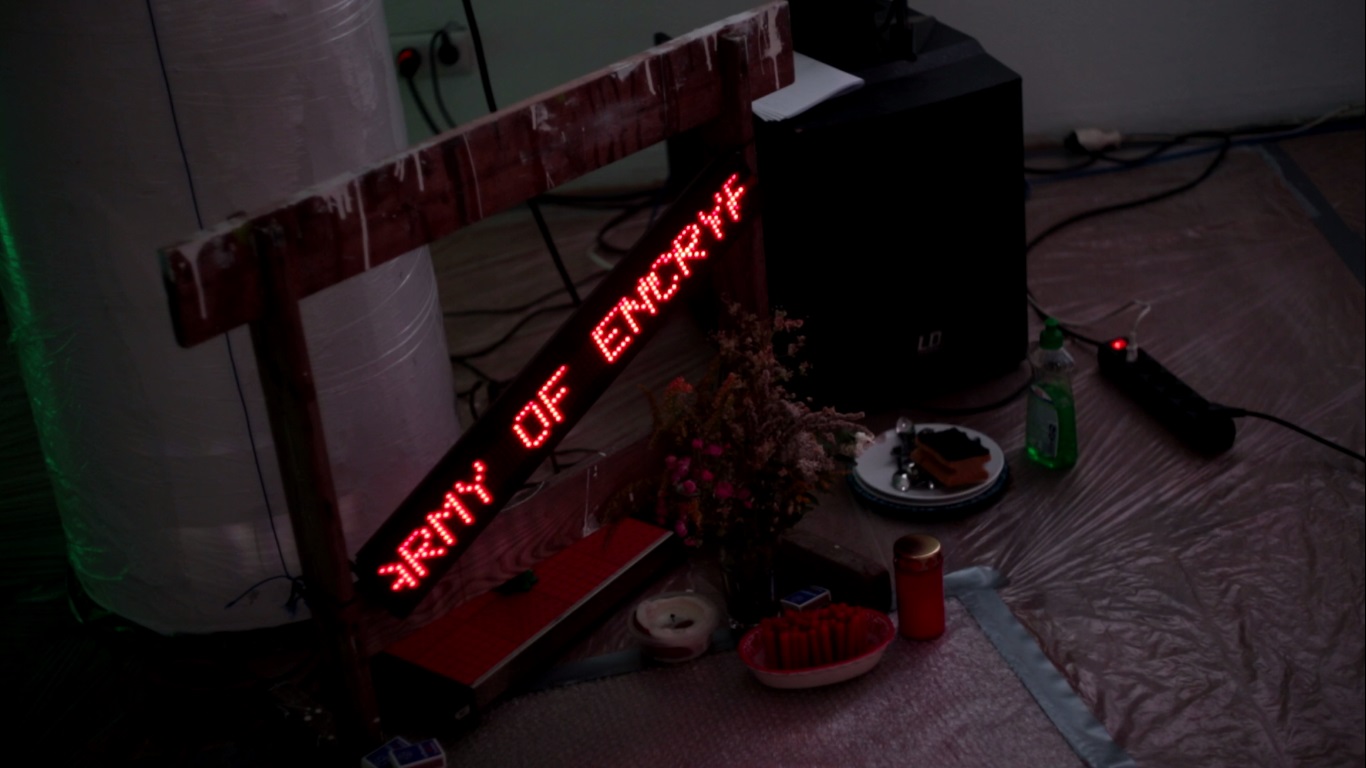Termin Informationen:
-
Fr20Apr201819:00Eintritt frei
Moshabak - Nächte
Ein musikalischer Abend von NAWRAS mit Ziad Adwan, Wassim Mukdad (Oud), Valentina Bellanova (Nay) und Shingo Masuda (Quanun)
Nawras, 2016 in Berlin als gemeinnützige Organisation gegründet mit dem Ziel, die Kontinuität der syrischen Kunst und Kultur zu fördern, lädt ein zum dritten Abend der Moshabak Nächte! Diese sind eine Serie kultureller Veranstaltungen, die einmal im Monat syrische, deutsche, arabische und internationale Künstler zusammenbringt und präsentiert, die mit neuen Kunst- und Kulturformen die Gesellschaft bereichern. So soll ein Treffpunkt für regelmäßige Begegnungen zwischen syrischen und internationalen Künstlern, Produzenten und Aktivisten geschaffen werden.

© privat Ziad Adwan arbeitet im Theaterbereich inklusiver Workshops, community theatre, physical theatre, und text-based Theaterstücke. Er promovierte über “Mistakes, and Making Mistakes in Cultural Representations“ am Royal Holloway in London. Er war Dozent am Höheren Institut für Dramatische Künste in Damaskus/Syrien. Zu dem war er künstlerischer Direktor von „Invisible Stories“, einer Serie von Straßentheater-Events die in Damaskus stattfanden.
Zur Zeit lebt Ziad in Deutschland und ist Teil des Teams für das Global Theatre Histories Research Project an der LMU München und ist Partner am Tanween company for dance and theatre.

© Anton Tal Wassim Mukdad is a musician from Syria, he composes, directs and plays the Oud (the Arabic Laute) performing multiple genres like Tarab, Dance and Medieval music mixed with elements from other musical cultures.
Since early childhood, Wassim played both the Oud and Piano, strongly inspired by Munir Bashir, one of the best Oud players in the history. He continued his academic studies at ‘’the Higher Institute of Music in Damascus’’ under the supervision of the renown professors Askar Alikbarov (from Azerbaijan), Isam Rafee and Mohammad Othman (from Syria).
As A Psychosocial Specialist had Wassim helped traumatized Palestinian, Iraqi and Syrian IDP children affected by wars 2010 – 2012 in Syria through music and choirs in cooperation with UNRWA, UNICEF, DRC (Danish Rescue Committee) and SARC “Syrian Arab Red Crescent SARC”, and he continues his efforts in this field participating in Projects such as “Musikplus Fusion” with Berliner Philharmoniker - Education department in Berlin.
Wassim works currently on various music projects like ‘Berlin Oriental Group’’, a mixed band of Syrian, Italian, Russian and German musicians, delivering a message of peace and diversity. He is also a part of ‘’Babylon Orchestra’’, an orchestra for fusion of Arabic music and European music in Berlin. Wassim has performed also with a lot of ensembles in Syria and Turkey stressing on opening the conversation between cultures and advocating peace in the face of stereotyping, racism and wars.
In all of these projects, Wassim continues to fulfil his vision of music as one of the most important means of communication, which can connect people from variable cultural and lingual backgrounds and lets them interact on a very deep emotional level.

© Anton Tal Valentina Bellanova was born in Florence, where she later studied musicology and recorder. She then furthered her instrumental studies in Germany at the University of Music, Drama and Media in Hanover, where she obtained her Soloist’s Diploma. She moved to Berlin at the beginning of 2014.
She has been very involved with classical Turkish and Arab music for several years now, also studying their respective aesthetics and theories. She plays both the Turkish and the Arabic Ney and regularly performs these instruments in various music and theatre projects (for example as soloist in the National Theatre Thuringia, in the NDR Radio Station in Hanover, in the Kulturforum in Frankfurt (Oder), in the Komische Oper Berlin, in HAU Theater Berlin etc.
Her teachers of Ney and modal music include Ross Daly, Ömer Erdogdular, Kudsi Erguner, whereas she studied the recorder and Early Music with David Bellugi, Federico Maria Sardelli and Ulrich Thieme.
In addition to working as a freelance musician, she teaches Ney at the BTMK (Berlin Conservatoire of Turkish Music) and Recorder at SOS Berlin.
She is also involved in research and publishing. For instance, she issued the first edition of Concertos for Recorder by the Neapolitan composer Nicola Fiorenza (published by Girolamo).
© Masanori Hirachi Shingo Masuda is a Japanese kanun player, was born in Osaka of West Japan in 1986.
He started the piano when he was a child.
He has studied the piano and experienced the percussion in his life.
Since 2009, Shingo has been recommended to play the kanun and Arabic music by Arabic music players in Japan and started them in Egypt.
After that he has been to Egypt, Tunisia, Turkey and Greece, and he has been studying the kanun and musical methods of modal music.
During his career, Shingo has experienced to perform various situations such as some festivals, the program of Japan Broadcasting Corporation, some temples and shrines and more.
And he has participated some bands of various music genre and collaborated with many musicians, dancers and artists.
In 2016, he has performed for World Music Oreum Concert in Jeju Island, South Korea such as a member of 奈良楽譜 (Nara Score).
Since 2012, he has performed in Taiwan every year.https://www.facebook.com/shingoqanun/
